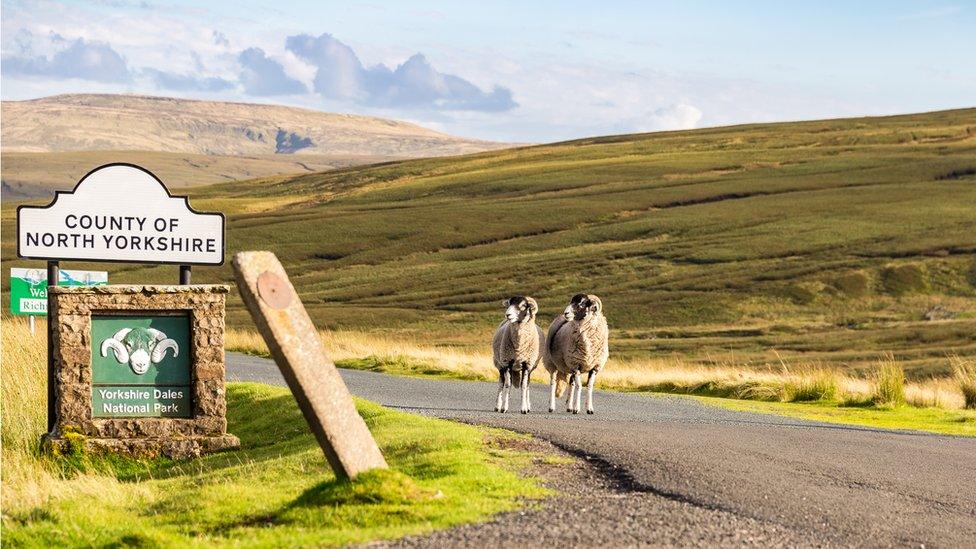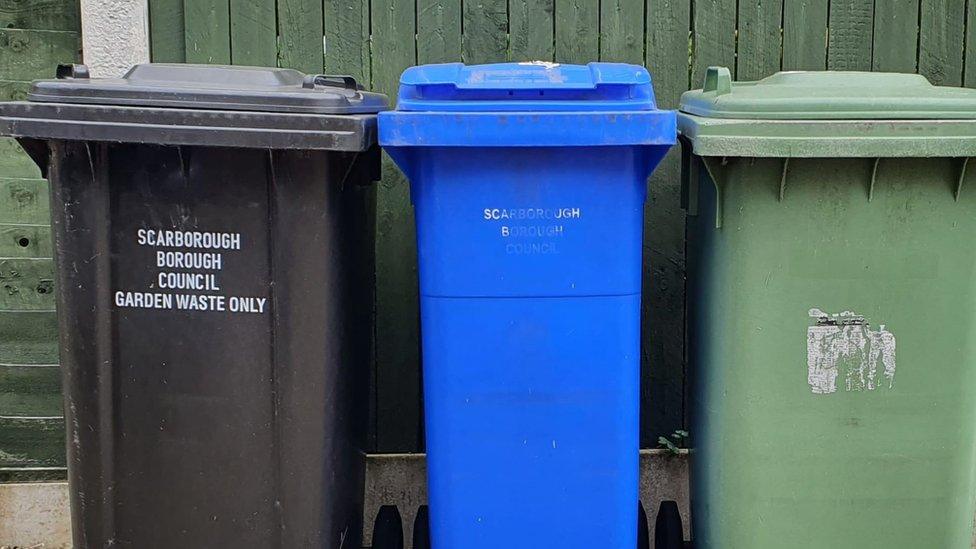Local elections signal big shake-up for North Yorkshire
- Published

North Yorkshire County Council was created in 1974
Local government in North Yorkshire is facing its biggest change in almost 50 years as elections take place on 5 May.
A new unitary authority will provide all council services in the county from 2023, it was confirmed last year.
The shake-up means the abolition of the area's seven district and borough councils which have served the county since the last reorganisation in 1974.
On polling day voters will elect 90 councillors in 89 new electoral divisions for a five-year term.
They will serve for a year as councillors on the existing county council, but once that and the districts are abolished in 2023, they will serve as councillors on the new authority, which will be known as North Yorkshire Council.
It will cover the whole county with the exception of the City of York, which became a unitary authority in 1996.
The change will see the new council deliver all services to residents across the county.
Presently it is the district councils which issue council tax bills, run sports, leisure and cultural services, deal with council housing and housing benefit, collect rubbish and run street cleaning.
The county council is currently responsible for education, adult and children's social services, concessionary travel, libraries, highways and traffic management, passenger transport, public health, trading standards and waste disposal.
Some services including planning, economic development and tourism are delivered by both the county and the districts.

Services currently provided by district council's will transfer to the new council in 2023
The county council, which argued for the switch to a unitary authority, said one council delivering all services would mean savings to taxpayers.
Many of the districts opposed the change, arguing instead for the creation of two unitary authorities due to the county's size.
The county council has said residents should not be impacted by the change and should not notice any great difference to the services they receive.
It is proposing the new council will offer existing town and parish councils the option of taking control of some services in their local area.
Those, it said, could include street cleaning and helping develop local tourism, providing they are able to demonstrate value for money and the ability to deliver.
However, it will be up to the people elected on 5 May to decide how the new council will be run.
There is a further impetus behind the change - the desire for devolution.
The government has said any deal to give the county more powers and cash, similar to those granted to West and South Yorkshire, was dependent on the creation of a single council.
It will be up to the newly-elected council, working with the City of York Council, to negotiate any devolution deal which would mean the establishment of a combined authority and an elected mayor.

POSTCODE SEARCH: Is there an election in my area?
WHAT'S HAPPENING WHERE: Really simple guide
ENGLAND: Simple guide

Follow BBC Yorkshire on Facebook, external, Twitter, external and Instagram, external. Send your story ideas to yorkslincs.news@bbc.co.uk or send video here.
